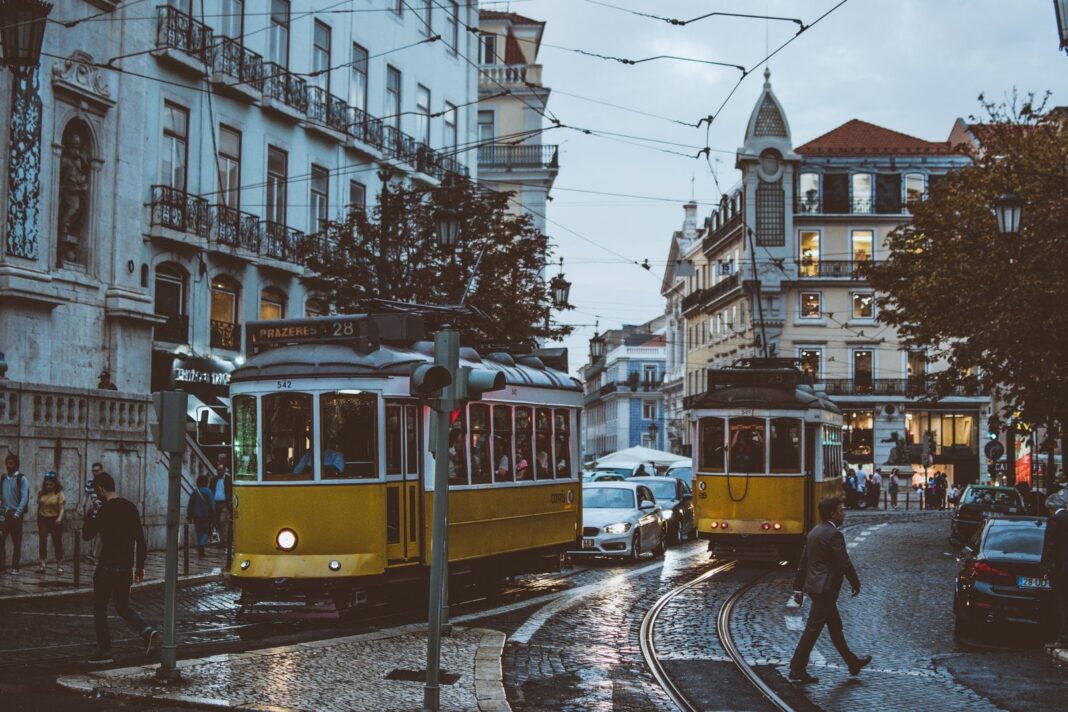After the socialist lead Portuguese government fell, amid an annual budget vote, Portugal is facing a parliamentary election on the 30th of January. This is what you need to know to better understand the possible results.
Portugal has had a government led by the center-left Socialist Party (PS) for 6 years now. After losing a Parliamentary Election in 2015, António Costa, leader of the Socialist Party, managed a never tried before coalition between the 3 major left-wing political parties: PS (Socialist Party), BE (Left Bloc) and the PCP (Portuguese Communist Party).
This slightly informal coalition deposed the right-wing government composed of the center-right Social Democrat Party, PPD/PSD, and the right-wing People’s Party, CDS-PP, that ran the country for 4 years.
Between 2011 and 2015, the right-wing government, led by Pedro Passos Coelho, imposed several, highly unpopular, austerity measures, many of them proposed or even enforced by the IMF or the many EU financial institutions. These austerity measures consisted of privatizations of public companies, salary cuts for civil servants and the abolition of several labor rights.
Although the economy recovered, and the deficit closed, many people felt that their rights (mainly labor rights) were taken away from them. This led to a very severe and active opposition throughout the 4 years of the legislature, or as most people nowadays call them: “the Troika years”.
So when the right-wing coalition won the plurality of votes and seats, but didn’t come close to a parliamentary majority, it was very clear that Pedro Passos Coelho time as prime-minister was over. What wasn’t obvious was the way that the President at the time, Aníbal Cavaco Silva (former prime-minister for the PSD), solved the situation.
In the first 4 years of power, PS reversed almost all austerity measures. The only austerity measures that remained active were the ones concerning labor rights and former state-owned companies. This, along with a very austere financial policy and a surprising liberalisation of the economy, in the midst of a touristic boom, deteriorated the relation between PS and the other, more extreme, left-wing parties.
In the 2019 election, it wasn’t clear if Costa was going to repeat the same formula, or even a variation of it. In the end, PS managed to get a predictable plurality, 7 seats close to a majority in the Portuguese Parliament, forming a minority government.
This minority government relied on votes from at least one of the left-wing parties to pass its annual budgets. Despite having managed the pandemic relatively well, and proposing an expansion on public investment, the left-wing parties voted down the Socialist budget, causing the dissolution of the parliament and the collapse of the government.
In reaction to the event, the Portuguese President, Marcelo Rebelo de Sousa (former PSD leader), scheduled snap elections for the 30th of January.
PS is polling consistently ahead of PSD for many years now, but PSD is ressurging in the polls, going from a 2 digit distance to a single digit distance from PS. This would not have been so alarming to PS if PSD hadn’t won the Lisbon mayorship last year in a similar way. The local elections in 2020 proved that PSD is having a comeback, with the center-right party recovering from the disaster of the previous local elections by winning back the control of many important cities, the most important of them being Lisbon.
With no chance of getting a parliamentary majority, and with the death of the left-wing coalition, Costa will need to find new allies to form a stable government. Luckily, the recently re-elected president of the PSD, Rui Rio, proposed a “central bloc”, a coalition between PS and PSD, with one backing up the other in case of no clear government solution.
Rio’s method of doing politics will also facilitate this solution. Rio distanced himself and the party from the economic liberalism and social conservatism of the past, adopting a more centrist, or even center-left approach.
Aside from this scenario, the Portuguese people are left with no clear alternative. Making the future of Portuguese politics very unclear. It’s uncertain if the left will be punished for having caused the political crisis, or if the division and infighting in the right will make that impossible.
What is clear however is the rise of the Portuguese far-right, with the populist party ENOUGH! polling well above 9%, making it the 3rd largest party in the country, a surprising feat considering it was founded less than 4 years ago.










Very good article!